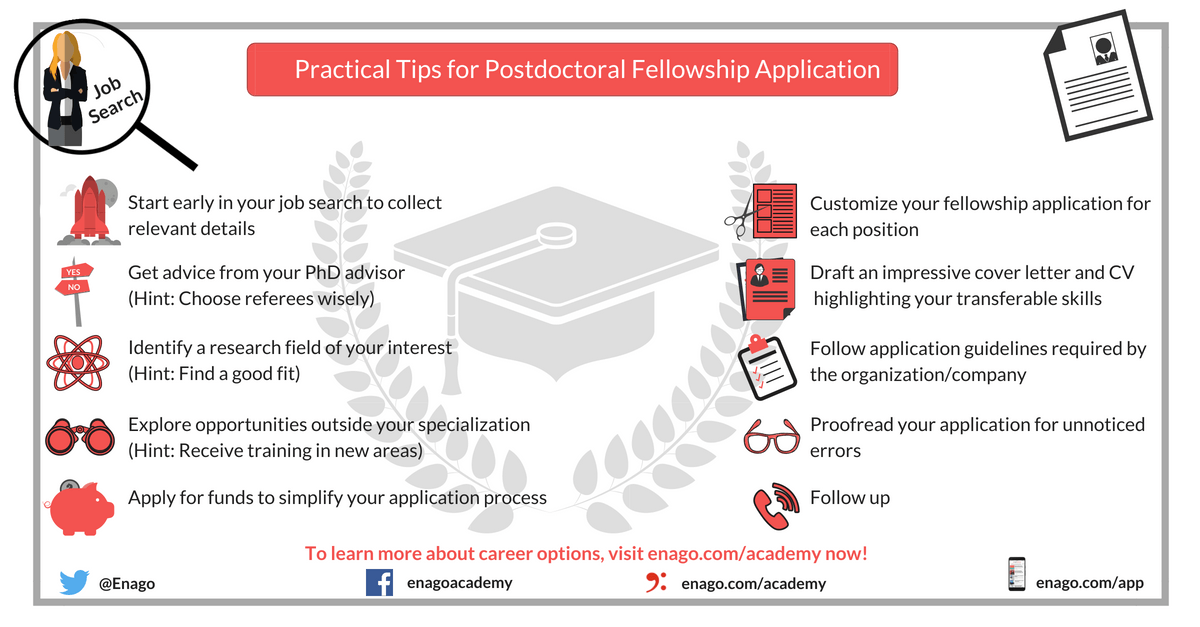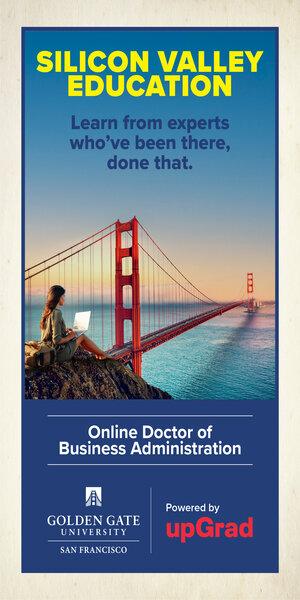Educational resources and simple solutions for your research journey


What Next After PhD? Decoding Your Life After a PhD

Acquiring a doctoral degree is undoubtedly a momentous occasion worthy of celebrations—students can relax, unwind, and let go of the many stresses associated with the past few years of hard work. But soon, these celebrations are followed by questions on the steps needed to grow professionally after a PhD. In this post, I hope to guide you toward finding an answer to the question “What comes after a PhD?”
So what does life after a PhD look like? It is inevitable that your PhD will leave you with an array of skills that are transferable across different sectors. These could be technical skills that are domain-specific and, more importantly, broad skills such as project management, data analysis, and effective communication. Often, it takes a while after a PhD for students to acknowledge that they are indeed equipped with these skills. Hence, it is a good idea to create a portfolio, mapping different skills to the projects and tasks that were undertaken during and after your PhD.
Choosing the next step in your career and life after PhD would then trickle down to your personal preferences and leveraging your skills tactfully. If you’ve felt stuck with the question of what to do after a PhD, here are some career options to consider:
- Postdoctoral fellowship. After a PhD, if you are keen to continue doing research, you can pursue a postdoctoral fellowship in an academic institution and then work toward securing a tenure-track professorship. And while this path surely has its perks, especially if you want to set up your own research lab, it may be helpful to know that this is not the only worthwhile career path in life after a PhD.
- Industry research. If you are not keen on research in academia after a PhD, you can opt to join the industry directly or after a few years of academic or industrial postdoctoral fellowship. If you choose this life after a PhD, you may need to invest additional time and energy in understanding the differences in work ethic and culture between industry and academia. However, orientation to these aspects is usually part of the training that you might receive as a new employee. Upon entering the industry, you can expand your portfolio by exploring sales and marketing, product development, and business development options.
- Publication support. If you envision your life after PhD to be closely associated with research, but not directly involved in it, you can opt for careers in publication support, and work with publishers/journals or organizations specializing in scholarly communications.
- Science journalism and social outreach. If after a PhD, you are keen to explore your communication skills and contribute to filling the gap between science and society, you can opt for a career in science journalism/communication and can look for organizations that are involved in science outreach and social engagement.

If you have wondered about your career after a PhD, by now it may be clear that what comes after PhD is not a question you should stress about as there is no dearth of career options. However, here are a few additional points to consider helping you shape your life after PhD and to ensure that your career choice aligns well with your personal preferences.
- Financial aspirations. Financial perks vary drastically across the above-mentioned career options, and it is important to understand your personal financial goals before deciding what to do after PhD. Choosing an option that will help you grow both professionally and financially will keep you happier in the long run.
- Working in a team vs. working solo. As a PhD student, you may be used to working on your own and taking complete ownership of your projects and ideas. You may not always have this option in your life after PhD. It is important to acknowledge your preference regarding the change that might occur in an organization where you are expected to engage in teamwork and share credit for your ideas.
- Fixed work hours vs. flexible work hours . The doctoral journey is filled with unpredictability and you might have started getting used to the flexible work hours. However, after a PhD if you are planning to work in an organization where fixed work hours are a norm, then you might want to relook at your preferences and reconsider what to do after a PhD.
- Hierarchical vs. non-hierarchical work environment. This can be an important point to consider when assessing where you can thrive the most in your life after a PhD. A structured work environment, like an established company with a defined hierarchy may provide you security, stability, and opportunities for a steady rise up the career ladder. On the other hand, working in a non-hierarchical or non-structured environment like a start-up may require you to perform a variety of roles simultaneously, give you the flexibility and chance to explore new domains and acquire new skills regularly, and could be rewarding in its own way after a PhD.
Through this article, we hope you found an answer to the common conundrum of what’s next after a PhD. Ultimately, for a happy and satisfying life after PhD, adopting a growth mindset will take you far in your career, no matter which direction you choose.
Related Posts

What is Inductive Reasoning? Definition, Types and Examples

Independent vs Dependent Variables: Definitions & Examples
Career paths after a PhD
Research Retold

Have you completed your PhD? Congratulations! This is a great achievement. You are part of the world’s 1% of the population with a PhD (Coldron, 2022).
If not, maybe, you are thinking about doing a PhD and are considering if it is the right step for you. If you are looking into your future career, asking yourself what you want to do afterwards is important.
So… what happens after a PhD? What could your next adventure be? Would you like to stay in academia? Would you like to try other paths?
Although the most common direction for PhD graduates is academia, it is not the only one.
- Only 30% of PhD graduates end up in academia three years on ( HEPI, 2020 )
- Other graduates transition into industry, the public or charity sectors, education or become entrepreneurs ( University of Toronto, 2016 ).
It is up to your interests and the opportunities you take to make your talents shine. In this blog, we touch on three paths: a postdoc, working in industry and becoming an entrepreneur. Consider these options if the next stage of your career is still unclear.
What is it?
The most common milestone in an academic career after a PhD is doing a postdoc. This is a period in which you are expected to manage your own career development. In what sense? Well, you should be proactive and take steps to become an independent researcher ( KU Leuven, 2022 ). This includes:
- setting up and managing a research project to achieve certain objectives
- sharing your expertise with others through teaching, supervising and outreach activities
- taking part in effective collaborations
Research During a postdoc you can develop the skills to design, develop, implement and adapt an extensive research project. This can be a project proposed by you or you can support an existing project or research group. The project can be small or large-scale, in which case you will also gain coordination skills.
Networking You are encouraged to create and extend a network of researchers and industrial partners. A way to do this is by participating in (international) multi-stakeholder projects or research stays abroad. Besides travelling, staying abroad can enhance your professional profile and enrich the scientific community you are part of. Other tasks you should be mindful of, if you choose to stay in academia, are writing papers as well as editing and submitting grant or funding applications.
Teaching The teaching requirements during the postdoc will vary depending on the institution you are working at. In some cases, teaching is not compulsory. In other cases, you are expected to teach a certain number of hours and balance it with your research time. Whichever the case, it is always advisable to carry out some teaching, grading or tutoring; this will enhance your CV, build up your experience and reinforce your knowledge.
Existing support As a postdoc, you should get support from a senior academic who will play the role of “host” and offer guidance. Be mindful of who you choose to work with. Is that person an expert in your field of interest? Are they interested in your project? Are you interested in their project or research group? Are your working styles compatible? As in the case of the PhD, having a good relationship with your supervisor can boost your research and even your career.
Is a Postdoc for you?
Go for it if you want to stay in academia and if you want to become an independent scientist.
How do you know if you want to be a scientist? Well, getting involved in academia can occur in different ways. For example, some people use the PhD or the postdoc as means to advance their career since they can move to different countries and meet different networks where they find better opportunities. In other situations, good students working closely with a professor or research group can be offered the opportunity to stay for longer projects doing a postdoc.
Alternatively, there are people who have always wanted to do research. In this case, a postdoc might be the best course of action since it allows you to consolidate your research skills and gain more experience. Just remember that a postdoc is for a short period of time, usually a couple of years, and afterwards, you might be competing for funding often. If financial stability is a priority for you, consider your options carefully.
During the postdoc, you become aware of your capabilities and you realise how you can employ the skills you learned during the PhD for a personal project. Dr Jonathan J Huerta y Munive, Postdoc at the University of Copenhagen
Transition to Industry

What are the options for a PhD graduate in the industry?
Positions for PhDs in the industry largely depend on the field of the PhD, and what skills and interests you cultivated. For example, PhDs in arts and humanities can be a good fit for the publishing industry, digital marketing, NGOs, charities or civil services. Moreover, STEM PhDs can find a place in pharmaceuticals, data science, consultancy, industrial chemistry, aeronautics, finance, or even software engineering, among others ( Bennett, 2022 ).
Is a path in industry for you?
The industry has a faster pace and is a different environment than academia. If you want a change of lifestyle, then working in industry might be for you. Another advantage is that in industry, contracts tend to be longer than a postdoc, which provides more financial stability.
How can I transition to industry?
If you want to make the change from academia to the industry you must focus on your strengths. During the PhD, you gained many skills that are highly transferable to the industry. Here are some of the top transferable skills you gain from a PhD ( Lantsoght, 2022 ):
- Writing: After writing a thesis (and possibly journal papers or even blogs), your writing skills have been trained to be clear and concise. This comes in handy when reporting to someone, managing a team or for written communication in general.
- Presenting: If during the PhD you presented your research to many audiences, you now have practice in translating complex information and insights into accessible language and format. Use this skill to express your thoughts clearly according to your audience and influence others, for example when building relationships with stakeholders.
- Visualising information: Depending on your research, it is likely that you employed different visualisation techniques for your thesis and presentations. This experience to create and use clear visualisations is useful for reporting, presenting and management.
- Time management: During the PhD, you learn to manage your time and prioritise tasks. You become capable of organising yourself and meeting deadlines. This is very useful for project management and supervising.
- Analytical thinking : Being able to critically analyse a situation and solve complex problems is crucial in research, but also in businesses. Comparing solutions, deciding the best course of action and being able to see the big picture can provide a competitive edge to organisations.
- Autonomy: During the PhD, you learn to be independent and proactive. You do not need someone to tell you what to do next or to give you a set to-do list. Many organisations appreciate it if you do not require a lot of supervision.
- Teamwork: Depending on the nature of your research project, you might have come across teams that required your collaboration. For example, PhDs working in a laboratory or research group need to adapt to different opinions and working habits. These collaborations make you open-minded towards others and capable of creating productive relationships.
- Resilience: The PhD is full of challenges (the lab equipment is not working, the participants of your study are not complying with the activities, your code does not run, your draft is rejected… you name it). As you overcome them, you persist in achieving your goals. Being able to recover from setbacks and coming up with new solutions is useful for business development.
These skills are valued by commercial employers and organisations who look for skilled staff (including the public and charitable sectors). They also set you apart from bachelor’s and master’s students, so make sure you take advantage of them.
Additionally, be mindful of your interests and look for matching positions. Research your potential employers and think about what they are looking for. Is this something you have or need to develop? Do the daily activities appeal to you? Do you like the working culture? You can find useful information about companies on LinkedIn, so we recommend you create and maintain your profile. Here are some tips for optimising your LinkedIn profile .
Entrepreneurship

Self-employed PhD
As a PhD graduate, you become an expert in your field. It might not feel that way since you also become more aware of all you ignore. Yet, you still have more knowledge than most people. You can use this knowledge as a consultant within an organisation or independently. Alternatively, you can create your own business. It can be totally unrelated to your PhD or it can be the result of your research.
Creating a science spin-off company
It might be the case that your PhD research project can be employed to create new technology/drugs/methodologies with potential for commercialisation. In this case, creating a spin-off company might be something you can become interested in. Here is a list of 44 examples of spin-off companies in case you are looking for inspiration.
Is entrepreneurship for you?
Having a PhD does not necessarily mean you have an entrepreneurial profile. Although resilience, patience and the ability to work in teams are traits you can develop, entrepreneurs have to go the extra mile to influence and inspire others, while raising money and building trust and relationships ( Domayne-Hayman, 2020 ). If this is something you enjoy, then it can be a good path for you.
Things to consider
If you are thinking about creating a spin-off company from your research, consider the following points ( Domayne-Hayman, 2020 ):
- Is your idea fit to work in the real world? How can you make it appropriate for fulfilling a market need? Remember to get feedback from potential users in the early stages.
- How are you going to protect your idea? This will help you reassure investors that they will have a competitive advantage.
- Is there any support at your institution for startups? Many universities have hubs or incubation centres.
- Do you have any intellectual property obligations towards your institution? There are many cases in which the University has the intellectual property of research carried out within its boundaries. Revise your conditions.
- Who will be your team? What is your leadership style? Make sure you are compatible with your team.
- Who will fund your enterprise? Do research on the available kinds of investment (from venture capital to angel investors and supporting programmes at your institution)
In summary:
What do you think? Are any of these three options appealing to you? What do you want to do after your PhD? Let us know in the comments!
Many thanks to our Research Communicator, Phebe Bonilla, for writing this blog post.
- Bennett, Mark (2022) Non-Academic Careers – Jobs for PhD Graduates . Consulted 20th June 2022.
- Coldron, Alice (2022) How Rare (or Common) is it to have a PhD? Consulted 20th June 2022
- Higher Education Policy Institute (HEPI) (2020) New report shows 67% of PhD students want a career in academic research but only 30% stay in academia three years on . Consulted 21st June 2022.
- KU Leuven (2022) Charter of the postdoctoral researcher and the senior academic host . Consulted 16th June 2022.
- Lantsoght, Eva (2022) Transferable skills from your PhD . Consulted 20th June.
- University of Toronto (2016) 10,000 PhDs Project , School of Graduate Studies. Consulted 21st June 2022.
- Domayne-Hayman, Barbara (2020) The four pillars of a successful science spin-off company , Nature. Career column. Consulted 21st June 2022.
- 44 firms highlighted in The Spinoff Prize 2020 , Nature . Consulted 21st June 2022.
- For candidates
- For employers
- For members
- English (EN)
- Nederlands (NL)
Six career paths for PhD graduates
Every PhD student will ask themselves at one point: what shall I do after my PhD?
It’s worthwhile to start exploring your career options at an early stage (Why? You read it in this blog ). But what are your options? And which career paths can you choose?
Several sectors are yearning for young researchers with a PhD degree. Today I would like to broaden your horizon and show you six research-focused career paths for PhD graduates in the Netherlands:
1. Postdoc - Academia
The most familiar option after your PhD is the postdoc position. This is a temporary position (1-4 years) at a research university, university medical center or research institute.
As a postdoctoral researcher you often continue researching in the same or related field as during your PhD. You expand your research experience, by working at another university, in another lab, abroad, or by using a different research method. You try something ‘new’. You will have a greater degree of independence and more responsibility than during your PhD. More postdoc fact & figures, expert advice and personal stories.
2. Researcher/consultant - Industry
As a PhD graduate you can also start working as a researcher or scientific consultant in industry. Industry companies often have a Research & Development department where they think about process and product innovation, develop new products and find solutions to practical problems. The most research is done in electronics, pharma, high tech, telecommunications, finance and insurance. More industry facts & figures, and personal stories .
3. PhD graduate lecturer - University of Applied Sciences
Another path you can choose is working at a university of applied sciences: de hogeschool. At a hogeschool research is more practice-based, that results in relevant evidence and best practices that help companies innovate and that are useful to society.
Research is done in a lectoraat, which is led by a Lector. Most of the time you start with teaching as a lecturer, and later on you can expand your research tasks and grow to researcher positions. More university of applied sciences facts & figures, expert advice and personal stories .
4. Researcher/consultant - Not-for-profit
There are several not-for-profit independent research organizations in the Netherlands, which are not part of any government, university or company and where you can start working as a researcher or scientific consultant. You can think of organizations like TNO (Netherlands Organisation for Applied Scientific Research), Sanquin (Blood bank), ECBO (Expertise Centre for Vocational Education) and HollandPTC (proton therapy center).
Job titles vary a lot in this sector, examples are: scientist, researcher, project manager, modeller, engineer, coordinator, consultant. Consider different titles when you are searching for a job. More not-for-profit facts & figures, expert advice and personal stories .
5. Researcher/consultant - Government
You can also think about a career at a governmental institution. The research they perform aims at supporting policy decisions, advising Ministries and understanding societal behaviour. Researchers, analysts and policy advisors are demanded in several disciplines, like: IT, finance, law, policy, public health, behavioural and social sciences.
Think of organizations like the RIVM (National Institute for Public Health and the Environment), Sociaal Cultureel Planbureau (Netherlands Institute for Social Research) or Centraal bureau voor de Statistiek (Statistics Netherlands). More government facts & figures, expert advice and personal stories .
6. Startup entrepreneur
The final option I would like to inform you about today is the entrepreneurial one. Are you working on a very innovative idea or product during your PhD and want to market it? Then think of starting your own business.
The Netherlands is one of the top 5 innovation leaders in Europe and therefore has a great startup ecosystem. You have many resources that support you with setting up your business. Your university or a university-affiliated incubator can help you with marketing the product, and they offer services like office space and financing. More entrepreneur facts & figures, expert advice and personal stories .
Please keep in mind that there are infinite career options for PhD graduates and many more than I described above. Everyone has its own career journey.
Discover your future career path
Did you know that approximately 70% of PhDs and 80% of postdocs in the Netherlands pursue non-academic career paths? Discover your options with our Career Navigator! Read personal stories from other researchers and learn from their career steps and experiences.

Recent blog posts
Tips for successful collaborations with industry partners, how to compile your publication list, how to develop a publication strategy, how to use x (twitter) as a scientist, centering your teaching around your teaching vision, how to build up an (international) network, transitioning into the last leg of your phd journey, what changes between a postdoc and assistant professorship, how to write an academic cv, how to use linkedin as an academic.
Want to Get your Dissertation Accepted?
Discover how we've helped doctoral students complete their dissertations and advance their academic careers!
Join 200+ Graduated Students

Get Your Dissertation Accepted On Your Next Submission
Get customized coaching for:.
- Crafting your proposal,
- Collecting and analyzing your data, or
- Preparing your defense.
Trapped in dissertation revisions?
What to do after getting your phd: 5 next steps, published by steve tippins on february 11, 2019 february 11, 2019.
Last Updated on: 2nd February 2024, 05:47 am
What to do after finishing your PhD is a surprisingly common challenge for students who have recently graduated. So if you’re asking this question, you’re not alone.
After years of hard work and passing on enjoyable opportunities to get your writing done, you have finished your dissertation. This is quite an accomplishment. But what do you do now that you’ve finished?
This is something that few doctoral programs prepare you for. How do you take what you have learned and capitalize on it? How do you start your new career or use your PhD to take the next step in your existing one?
What to Do After Getting Your PhD
Based on my own experience and my experience coaching countless recent graduates, I’ve come up with an answer. Here is what to do after PhD is officially part of your title.
Step 1: Take a Breath
It may be tempting to rush right into the next thing. You finally have your PhD, now you get to use it! Apply for a thousand jobs, become a postdoctoral fellow, take a research trip to Indonesia with your favorite professor, launch a consulting firm, and publish a Nobel-Prize-worthy paper in an academic journal. All before breakfast.
Or not. In fact, my advice is to slow down. Not for too long–of course you have to take the next steps in your career. But once you start your career, it’s that much more difficult to take a break. Relax for a moment, and then take a good long deep breath. You are at the summit of one of the largest (proverbial) mountains you’ve ever climbed. Take a moment to appreciate the view. Then, get back to work.
Step 2: Set your Goals

After taking a break, the first thing you need to do is figure out what your goals are . You employed a great deal of discipline to get to this point. Use that skill to determine how you want to move forward. Your doctoral degree is an asset, so try to maximize the return that you get. Getting clear on your goals will determine your next steps and provide a map of what to do after completing your PhD.
When setting your career goals, it’s important to remember your life goals. Remember why you started this journey in the first place. How have you changed? How have your goals changed? What is most important in your life, and how will your next steps support this? Considering how your career fits into your life as a whole will help you make decisions about how to move forward.
Here are some of your options:
Do you want to publish? Think hard about this. You are now an expert on your topic, it would be great if you shared that expertise with the world. Think about your goal in publishing. Is your goal to see your name in print so that your mother can brag about her child being a published author? Do you want to spread the findings of your dissertation across the world to help humanity? Different goals will lead you in different publishing directions.
What a noble profession. Many people want to use their degree to help shape the future by teaching. If this is a path for you, think about the following questions: Do you want to teach full time or part time? Would you prefer to teach online or in a traditional classroom setting? Are you bound to one geographic location or are you willing to go anywhere? Do you want to prioritize teaching over research or vice-versa? Each choice offers various, but different, opportunities.
Outside of Academia
Are there non-academic alternatives available to you? Are you looking for a promotion at your current job? Do you want to speak at conferences? How about a new job? Maybe consulting is the path that you want to take. Your degree puts you in a very small group outside of academia; use it as best you can, remembering that you will be seen as the expert in most settings.
There are many things that you might want to do with your degree. Stop and take the time to determine your goals and then you can see how all of the hard work that you put in to get your degree can get you there. If you find yourself stuck, or want support realizing your full potential, career coaching can help.
Step 3: Prepare your Material
No matter what you choose to do after getting your PhD, you will have to put together a package of material that represents you. This is true whether you want to apply for academic jobs, work outside academia, or start your own business as a consultant. This is the first thing that most employers or potential clients will see of you, so make sure it represents the best of who you are.
You will need a resume and to be ready to answer all kinds of questions. It’s important to update your resume after finishing your PhD, adding relevant accomplishments and experience besides your new degree.
Prepare to answer common questions (for example, “Why did you get a PhD?” “Can you tell me about a situation where you worked well with others?” and “Can you tell me about a situation where you were able to work with someone who was difficult to work with?”).
Also, remember to highlight the unique strengths and skills that you have as a newly minted PhD. Having spent the past few years in the company of other people who either already have PhDs or are trying to get them, it’s easy to lose sight of your uniqueness. Remember the grit and persistence you’ve shown, the critical thinking skills you’ve had to cultivate, and the balanced ability to simultaneously take direction from committee members and forge your own unique research path.
Remember that you are a member of a small group of people with an exceptionally useful skill set, and a degree to prove it. You have proven your capacity to innovate, learn, and work with others. Take a look at Catherine Sorbara’s excellent article on this subject.
Inside of Academia
Work on creating a CV (curriculum vitae) that fits the standards of your discipline. You will probably need to submit documents that cover your teaching philosophy, a list of references, a research agenda, and copies of teaching evaluations, if available.
If you get a campus visit interview, you will need to prepare a presentation about your research and may be asked to teach a class or give a seminar to interested students. Do not take these two steps lightly, as the search committee will get feedback from everyone who participates in these sessions about your suitability for the position.
Find research interest connections at prospective universities. Look within the department you are applying for professors who share your research interests, but also look more widely — to the college and to other colleges within the university — for others doing related studies that may dovetail with your work. The potential for collaborative research and interdisciplinary studies will catch the attention of university administrators and may well give you an edge.
Seek advice. Make sure you are prepared for all of this and get well-acquainted with norms. Your professors and advisors are an excellent resource to help you prepare for this, as are my career coaching services .
Step 4: Search for a Job

When people ask what to do after PhD completion, they’re usually trying to skip ahead to this step–but it’s vital to take the time to set your goals and prepare your material before looking for a job . Now that you’ve done that, you can set your sights on your new (or improved) career. Many people use their PhD as a springboard to an exciting new career path. Here are some insights to help you do that.
The Chronicle of Higher Education is a great place to start. The Chronicle posts jobs daily online for most disciplines. You can also look at HigherEdJobs which tends to have jobs that may not make it to the chronicle.
Conferences within your discipline are a very good place to find out about jobs. Also, the professors within your program may be a good source of contacts who may know about jobs. Remember, most academic jobs start in August/September and postings may come out as much as 11 months before a job starts.
Some professions specifically recruit PhDs. If you are in the sciences this may be the case. Consultancy firms also seek PhDs. Outside of these areas the job search may include networking, sending out resumes, and using the services of recruiters. Your committee chair may be able to connect you with former students in your field who would be willing to make introductions. Most universities have career centers that offer assistance with networking and other job-seeking skills.
Step 5: Stay on Track
Periodically reevaluate your goals–both whether you’re meeting them and whether the goals themselves need to change. Perhaps you started out wanting to pursue research but have fallen in love with teaching. Or maybe you started off teaching but found that consulting is much more enjoyable. Whatever your goals are, they’re subject to change as you learn and grow.
However, if your goal was to teach but you find yourself getting bogged down in research projects due to the pressure to publish, take some time to reflect on how you can better achieve the goals that are most fulfilling to you. Would you prefer an instructor’s position? Or perhaps looking at universities that emphasize teaching over research would be your solution.
What to Do After PhD Completion: A Summary

Getting your PhD is a huge accomplishment. However, if you’re wondering what to do after your PhD is complete, you’re not alone. Once you finish your PhD, take a breath and allow some space in your life. Next, determine your goals and create a plan for how to proceed. Once you are clear on your goals, prepare your materials and apply for jobs. Finally, periodically re-evaluate your goals to see whether you’re meeting them and whether they’re still relevant.
Many recent graduates use a career coach to help them in this process. If you are interested in this kind of coaching, feel free to take a look at my services page or get in touch.
Steve Tippins
Steve Tippins, PhD, has thrived in academia for over thirty years. He continues to love teaching in addition to coaching recent PhD graduates as well as students writing their dissertations. Learn more about his dissertation coaching and career coaching services. Book a Free Consultation with Steve Tippins
Related Posts

Academic Career
Bipoc academics matter: diversity in academia is long overdue.
We at Beyond PhD Coaching firmly believe that diversifying academia is both necessary and important – and well past overdue. There’s no denying that higher education equals more power in society. This power has been Read more…

Academic Arrogance: Dismantling a Culture of Harm
Academics are like polar bears. We live alone; we hibernate. If you walk down the halls of academic offices, you’ll find that almost all of the doors are shut. We live a solitary existence, occasionally Read more…

How to Be a Good PhD Student
If you’re curious about how to be a good PhD student, this article is a good place to start. As a professor for over 30 years, much of that as a Dissertation Committee Chair, I’ve Read more…
Make This Your Last Round of Dissertation Revision.
Learn How to Get Your Dissertation Accepted .
Discover the 5-Step Process in this Free Webinar .
Almost there!
Please verify your email address by clicking the link in the email message we just sent to your address.
If you don't see the message within the next five minutes, be sure to check your spam folder :).
Hack Your Dissertation
5-Day Mini Course: How to Finish Faster With Less Stress
Interested in more helpful tips about improving your dissertation experience? Join our 5-day mini course by email!
- Log in
- Site search
Your PhD, what next?
Those who've completed a Doctorate are finding more opportunities to work outside of academia than ever before - discover the types of PhD jobs available and what other PhD graduates go on to do
What jobs can I do with a PhD?
The most common roles for PhD graduates are:
- teaching professionals
- natural and social science professionals
- research and development (R&D) and other research professionals
- therapy professionals
- business, research and administrative professionals.
Although getting an academic job is a natural step for many PhD graduates, a greater number of opportunities exist outside of teaching and education .
For instance, a significant amount of PhD graduates work in healthcare (14.9%), and construction , engineering and research and development (11.1%). This has perhaps been helped by private sector companies becoming more research-orientated in recent years.
As well as the medical profession, research scientists can also specialise in life sciences , maths and physical sciences .
If you've aspirations to become a clinical or educational psychologist , you'll need to have studied a specific taught Doctorate in either clinical (DClinPsy or ClinPsyD) or educational (DEdPsy) psychology.
How do I get started in academia?
Those graduating with a PhD often struggle to secure a permanent academic job immediately. To give yourself the best chance, contact as many other academics as possible in your specialist field.
You may then be presented with the opportunity to become a teaching or research fellow, though this is likely to be on a short-term contract with a view to permanent employment.
You may find opportunities on individual university websites or at Jobs.ac.uk . You can also read about getting an academic job for more information and advice.
Can I get a non-academic job?
There are many ways to boost your chances of landing non-academic PhD jobs. You should:
- build a network of contacts to help you unearth 'hidden' job vacancies
- gain relevant work experience in your chosen field
- search for graduate jobs
- use social media to join in discussions with like-minded academics and share your research and opinions.
It's also worth regularly checking sector-specific websites and publications for job adverts, such as:
- Nature Careers
- New Scientist Jobs
- Science Careers
- Technojobs - PhD jobs
- The Economist
- The Psychologist (The British Psychological Society)
How do I sell my PhD to employers?
When applying for non-academic PhD jobs, you must demonstrate how your knowledge and expertise will benefit the employer. Focus on the transferable skills that the PhD has helped to enhance, such as:
- communication skills - you'll have given many presentations , lectures or seminars
- creative thinking - PhD students are often asked to think outside the box
- management ability - as well as managing your own time and workload, you may have managed a small team of research assistants or mentored undergraduate students
- problem-solving skills - during your PhD, you'll have tackled and solved numerous research problems.
For more guidance, see applying for jobs .
What do other PhD graduates do?
Of the PhD graduates in employment 15 months after graduation in 2020/21, just over a fifth (21.3%) found work in education - as higher and secondary education teaching professionals. The majority therefore chose to pursue non-academic careers.
PhD destinations data from the Higher Education Statistics Agency (HESA).
How would you rate this page?
On a scale where 1 is dislike and 5 is like
- Dislike 1 unhappy-very
- Like 5 happy-very
Thank you for rating the page

You Have a PhD! What Next?
A PhD is the highest qualification you can have and is essential for a career in academia. However, there are many challenges to getting academic jobs as some PhDs have interest in non-academic careers. You should have a plan for your career after your PhD. What path will you take? What can you expect from life after your PhD?
Difficult Job Climate
The job market information is not encouraging. A recent report by the National Science Foundation on PhDs found that a PhD takes about eight years to complete. PhD graduates have significant debt and more than 12% of graduates owe $70,000 in student loans. They often do not have a job soon after graduation. Almost 40% of 2014, PhD graduates did not have a job offer.
The ones who get a tenure-track job will earn about $60,000 a year. About 39% of PhDs will do a post-doc where the average salary is $40,000 a year. This is less than the median entry-level salary for a B.A. graduate, which is $45,478. Some of the PhD graduates with academic jobs are part-time or adjunct professors. These positions comprise 76% of the academic labor force . They pay less than $3,000 per class, and offer neither benefits nor job security.
Are There Too Many PhDs?
Despite these depressing statistics, more people are doing PhDs. In 2014 alone, 54,070 PhDs were awarded. This is 12,000 more graduates than in 2004. Every field had more graduates in 2014 than 2004 except for education. Science and engineering had the biggest increases. However, what are all these graduates to do?
The majority of these people will not find work in academia. A recent study has found that there is a definite bias to those who become a professor. Just 25% of universities produce 71-86% of tenure-track faculty. Graduates of more prestigious universities have a much better chance of getting tenure. For example, history graduates from the top 10 universities produce triple the number of professors as the universities ranked 11 through 20.
It is possible to become a professor without graduating from an Ivy League school; however, this is extremely difficult. This requires a lot of hard work. Landing a postdoctoral fellowship where you can show your skills helps as does having an influential mentor. This incredible bias also means that important discoveries from lower ranked universities can end up being ignored.
The difficulty in getting an academic job may not be a bad thing. Only 56% of economics PhDs stayed in academia in 2011. Regardless of field, PhD programs teach some invaluable skills. Doing a PhD teaches you to be self-motivated and helps in understanding complex ideas. PhD programs also help in learning to communicate complex ideas clearly and force students to come up with innovative solutions to problems. These are valuable skills outside of academia as well.
The labor market is changing. The most successful people will be those with advanced skills who can work alongside machines. This will require thinking and technical skills and such advanced skills are acquired during a PhD. The days when doing a PhD guaranteed a comfortable academic job is now behind us.
What Should a PhD Graduate Do?
For starters, learn how to transition. PhD programs generally do not teach students how to market themselves for non-academic jobs. A few mistakes are common during job search. Networking is essential and important to make connections with people who will not be competing for the same jobs. An interview is not a chance for you to get as many questions right as possible. it is important to treat every job interview as your chance to see if the company is a good fit for you. You should also know your worth.
You could start your career after your PhD by investigating the possible jobs relevant to you. Once you know what the options are, you can decide to which non-academic position you wish to apply. There are many different niches that you could fit into.
If you want a career in academia, there are a few things you can do to get a job . Publications are critical. Being able to show a clear plan for your future research can’t hurt. Above all, you will have to be persistent. Do not give up when your applications are rejected. It is also important to have an alternative job plan. As you have seen, this is a difficult path and very few succeed in getting tenure.
A career in academia can be very fulfilling as academic jobs offer intellectual freedom and allow you to pursue research ideas that interest you. You can also tailor your life after PhD. There is the option of either choosing a research-intensive academic job or a position with a greater emphasis on teaching. You could also be interested in non-academic jobs, which could mean working in industry. Your career after PhD could also mean working in a job that is close to academia . Although getting a job in academia is difficult, the good news is that academia is not the only place where your PhD is valuable.

Rate this article Cancel Reply
Your email address will not be published.

Enago Academy's Most Popular Articles

- AI in Academia
- Reporting Research
How to Improve Lab Report Writing: Best practices to follow with and without AI-assistance
Imagine you’re a scientist who just made a ground-breaking discovery! You want to share your…

Achieving Research Excellence: Checklist for good research practices
Academia is built on the foundation of trustworthy and high-quality research, supported by the pillars…

- Promoting Research
Concept Papers in Research: Deciphering the blueprint of brilliance
Concept papers hold significant importance as a precursor to a full-fledged research proposal in academia…

8 Effective Strategies to Write Argumentative Essays
In a bustling university town, there lived a student named Alex. Popular for creativity and…

- Career Corner
- PhDs & Postdocs
7 Steps of Writing an Excellent Academic Book Chapter
Writing is an inextricable part of an academic’s career; maintaining lab reports, writing personal statements,…
When Your Thesis Advisor Asks You to Quit
Virtual Defense: Top 5 Online Thesis Defense Tips
3 Critical Tips to Maximize Your Potential As an Academic Researcher

Sign-up to read more
Subscribe for free to get unrestricted access to all our resources on research writing and academic publishing including:
- 2000+ blog articles
- 50+ Webinars
- 10+ Expert podcasts
- 50+ Infographics
- 10+ Checklists
- Research Guides
We hate spam too. We promise to protect your privacy and never spam you.
I am looking for Editing/ Proofreading services for my manuscript Tentative date of next journal submission:

What should universities' stance be on AI tools in research and academic writing?

Dear Lulu ,
Labby congratulates you on nearing your PhD completion. This is an excellent time to evaluate your personal goals. Your question revolves around what environment would best work for you in using the skills you have acquired.
Should you do a postdoc? Yes, if you want to run your own show in a research-intensive venue. A postdoc may not be necessary if you are happy to work within a group led by another scientist or run a shared research facility, each rewarding in its own right. You can still be a strong partner and contributor in the research, and often you can lead a group of less experienced technical scientists even if you do not direct the whole project.
In thinking about a good next step, remember what excites you about science. Does this include teaching the next generation? In academia, you could work with students who look to you for their learning about the entire process of doing science. You want to take on this profession only if you care deeply about the success of these “junior colleagues,” as you will be guiding them into the next phases of their careers and helping them decide, as you are, “What next?” You will also be an entrepreneur in this position, running your own show in the lab and the classroom. If research is an important part of the job, you will be responsible for funding your own show, too.
Is research in industry a match for you? In industry the company typically provides state-of the-art equipment to help you do your job, and the company is vested in your success because you are the foundation of the company’s success. It can be very satisfying to see how research and development can lead directly to a marketable product. You will still be a mentor if you are hired to direct a team on a particular project goal. Here, however, project management involves both scientific and business decisions under timelines that you may not dictate, and projects can be started or terminated abruptly depending upon decisions in the organizational management above your level.
Then there are research institutes, which are a hybrid of academia and industry in terms of a research career. They usually are much closer to academia in the research independence and selection of projects afforded their researchers, and they often allow basic research to move “off topic” of the particular institute’s overarching vision statement. Depending on an institute’s funding sources, some require extensive grant writing and others do not. Usually they do not have students, but they do have postdoctoral fellows. And if you haven’t done a postdoc you can be a research scientist in the lab of a PI in a research institute.
After you consider these traditional paths, Labby suggests that you explore other options for employment with your new PhD. Your training in the process of science, how to interpret data, how to be critical about data and information, and how to write and speak about science are in demand in many venues. Among these are government (working in the offices of elected officials or administering scientific funding), journalism (informing the non-science public about science and about issues arising from science), education (K–12 teaching, curriculum development, museum curation), quality control (around environmental issues such as water quality, or reviewing pharmaceutical and medical procedures), and many other areas. It might be useful for you to do informational interviews. Contact people in some of these positions, have coffee and pick their brains about how they got there, what they do, and what they like and don’t like. You might be surprised how receptive these folks are to talking with someone just competing a PhD.
Labby urges you to enjoy your last several months as you approach the awarding of your PhD. Let your head explode with the possibilities for things to do with the rest of your professional life, and then settle back and try one of those possibilities. Remember that no choice is irrevocable; we all learn as we go and then change when we find a new area or venue where we can contribute.
Got Questions? Labby has answers. ASCB’s popular columnist will select career-related questions for publication and thoughtful response in the ASCB Newsletter. Confidentiality guaranteed if requested. Write us at [email protected] .
About the Author:
Recommended articles.

Thank you for visiting nature.com. You are using a browser version with limited support for CSS. To obtain the best experience, we recommend you use a more up to date browser (or turn off compatibility mode in Internet Explorer). In the meantime, to ensure continued support, we are displaying the site without styles and JavaScript.
- View all journals
- Explore content
- About the journal
- Publish with us
- Sign up for alerts
- Published: 09 October 2020
What next for postdocs?
Nature Cancer volume 1 , pages 937–938 ( 2020 ) Cite this article
3733 Accesses
35 Altmetric
Metrics details
Postdoctoral researchers face substantial challenges and stresses that have been exacerbated by the COVID-19 pandemic. Positive action is needed from research institutions, funders and individual investigators to support postdocs and fortify the research endeavor.
In theory, a postdoctoral fellowship may sound like an ideal situation — a short-term, funded research position under the mentorship of an established investigator that offers the opportunity to learn new fields, expand and hone technical skills and develop one’s own research ideas on the route to professional independence. However, the reality of the postdoc life is much harsher.
Even though, according to one survey, the majority of PhD graduates who undertook postdoctoral research did so aiming to secure a tenure-track faculty position 1 , a postdoc placement provides no such guarantee. Separate research indicates that even though the vast majority of research faculty have done postdoctoral work, the likelihood of securing a tenured or tenure-track position 10 years after obtaining a PhD was only 27.4% for PhDs awarded between 1980 and 2003 and dropped to 21% for those who graduated in 2001–2003 (ref. 2 ). Although in recent years the industry has been absorbing a larger number of postdoctorally trained researchers 2 , many are left feeling professionally unmoored by their postdoctoral experience. A postdoc that would lead to an independent research position is in most cases synonymous with impactful first-author publications. As a result, securing postdoctoral funding and positions in prestigious institutes is very competitive, and the time constraints of fellowships and grants place high expectations and pressure to generate results in a limited amount of time. Those who would like to stay in academia but not as independent investigators have no clear career path, as their research experience rarely translates into more stable types of relevant employment, which leads many to abandon research.
Despite the time pressures that conducting research entails, the average postdoc lasts ~4 years (ref. 2 ). Whether such positions can be considered ‘short-term’ is debatable, especially as for many people, their postdoc years coincide with major life decisions, including where to settle down and whether to start a family. Postdocs often struggle to reconcile professional and personal goals, a challenge that is magnified by financial difficulties. Postdoc positions are not well paid, especially compared with positions in academia and industry 2 , and this includes large and expensive metropolitan areas. Although some universities and institutes provide subsidized accommodation and other benefits, such as childcare, this is not the norm. Instead, despite being an essential part of the research workforce, postdoctoral positions are not always formally recognized as employment but often fall into the ‘trainee’ category, a gray and precarious zone between being a student and being a full-time employee that affords fewer working rights and benefits. This is especially true in the USA, although countries with strong employment laws and social policies, such as the UK and members of the European Union, may provide better professional protection.
In addition, many PhD graduates are compelled to emigrate due to the limited postdoctoral research options in their home countries, or in search of higher quality training. The fact that their career prospects and important life decisions are tied to their immigrant status can be a source of constant anxiety, especially in recent times 3 .
Whittling down one of the most experienced, driven and productive group of researchers is a very counterproductive way to run the scientific enterprise. The inadequacy of the current system has been laid bare by the COVID-19 pandemic, which has magnified existing challenges and created substantial new ones. Lab closures forced researchers in many countries to stop all non-essential or non-COVID-19-related work, often for extended time periods, which meant that precious reagents and experiments had to be terminated at short notice and months of work were frequently lost. Although many labs have since re-opened, work is proceeding at a slower pace or with restrictions due to the implementation of necessary health and safety measures that include enhanced cleaning and disinfection procedures and working in a physically distanced manner or in shifts. The pandemic has also reduced the ability of many postdocs to work, due to increased family and caretaking responsibilities arising from school closures and lack of childcare options, or because of the need to care for ailing relatives, something that unfortunately affects women more than men . Many postdocs are also facing their own health issues, whether caused by COVID-19 directly, or indirectly by its devastating impact on healthcare and by the exacerbation of mental health problems 4 .
Although some institutes and funders have offered support, such as by extending grant deadlines and postdoc salaries during lab closures, it is unclear how this financial burden will be borne, as these institutions are feeling the crunch of the ongoing major financial crisis 5 . Budget cuts are already signaling that the competition for funding will become even more vigorous. Those who do secure funds might have to extend their postdoc years beyond what they originally planned. Others might have to cut their postdoc short regardless of the stage of their project and look for professional opportunities elsewhere. Postdocs affected by border closures, travel bans and increasingly aggressive anti-immigration measures are particularly vulnerable in this context 3 .
The dire financial situation is also translating into broader hiring freezes, diminishing the career prospects of postdocs on the cusp of academic independence, who find themselves in a professional limbo, as they may need to leave their current positions without having the opportunity to test themselves in the academic job market. In cases in which interviewing and hiring continues, candidates’ chances may be affected by traveling restrictions and the need to rapidly adapt to virtual job-hunting. The uneven global response to COVID-19, the uncertainty over how long the pandemic may last and the developing economic crisis set up the potential of a ‘two-tiered’ post-COVID-19 research landscape, in which the workforce of harder-hit regions will be at a financial and research disadvantage compared with countries that manage to control outbreaks more effectively and avoid lengthy lockdowns.
All the above add to the anxiety of postdocs about their future, as reflected in a recent worldwide survey conducted by Nature 6 . The majority of respondents experienced more work-related anxiety and depression during the pandemic and felt impeded in their ability to work. They also felt more disconnected, as they found it more difficult to share their results or even discuss ideas with their supervisors. Competition for funding, lack of jobs and the economic impact of the pandemic featured high among the challenges postdocs identified for their career progression.
These feelings of uncertainty, anxiety and isolation are not unique to postdocs but are widespread across the workforce in 2020. However, postdocs are a vulnerable group that is particularly valuable for the scientific enterprise, and thus it is crucial to address their needs. It has been heartening to see many research institutes and individual investigators step up to the challenge. These efforts come across in the Nature survey 6 , with more than half of participants stating that they felt well supported by their PIs during the pandemic. However, it is rather concerning that one third of postdocs queried said they lacked the necessary support. This may reflect the fact that although some institutions rolled out well-coordinated, centralized plans and guidance to PIs for supporting lab personnel, in other places the response has been ad hoc and has depended largely on individual postdocs raising issues or individual PIs striving to support their teams. Moreover, the vast majority of respondents noted that the duration of their postdoc had not changed, with only 10% reporting extensions to funding or postdoc contracts, which indicates that much work needs to be done to alleviate pressing stresses. Unfortunately, the financial problems of postdocs represent a Gordian knot, as even if universities, institutes and funders are willing to help, they currently face considerable economic challenges of their own.
Thus, it is important that postdocs themselves mobilize and be proactive. Nowadays, universities and research institutes typically have dedicated offices of postdoctoral affairs that can offer support and advice. In addition, there exist many independent postdoctoral associations, such as the European Council of Doctoral Candidates and Junior Researchers , the National Postdoctoral Association in the US and the UK Research Staff Association , that offer useful resources and fora through which postdocs can be heard. More formal representation can come in the form of postdoctoral unionization, a trend that has increased in the USA over the past decade, with the University of California postdoc union being the first to be established, in 2010, and that of Columbia University being the first to form at a private university, in 2018. A more informal but useful way to create support networks, build resilience, obtain advice and exchange information is to maximize digital connectivity through virtual social groups, social media and networking at virtual conferences.
There are no easy solutions to the challenges that postdocs face. In looking for silver linings, perhaps for some postdocs who entered this arena as a perceived default next step after their PhD, this could be an opportunity to re-evaluate career options and seek different, more fulfilling and secure professional routes. For those dedicated to a research career, concerted efforts by all parties involved are needed to provide improvements in the short and longer term. For PIs, institutes and universities, this should be a wake-up call to come up with innovative solutions to ensure that the scientific enterprise avoids hemorrhaging talent in the form of bright but disillusioned postdocs. The dire times of the COVID-19 pandemic demand that stakeholders revisit the concept of postdoctoral training and act to support and protect early-career investigators — they are the future of research and their value cannot be underestimated.
Sauermann, H. & Roach, M. Science 352 , 663–664 (May 2016).
Kahn, S. & Ginther, D. Nat. Biotechnol. 35 , 90–94 (2017).
Article CAS Google Scholar
Nat. Cancer 1 , 665–666 (2020).
Pfefferbaum, B. & North, C. S. N. Engl. J. Med. 383 , 510–512 (2020).
Nature 585 , 160 (2020).
Woolston, C. Nature 585 , 309–312 (2020).
Download references
Rights and permissions
Reprints and permissions
About this article
Cite this article.
What next for postdocs?. Nat Cancer 1 , 937–938 (2020). https://doi.org/10.1038/s43018-020-00137-w
Download citation
Published : 09 October 2020
Issue Date : October 2020
DOI : https://doi.org/10.1038/s43018-020-00137-w

Share this article
Anyone you share the following link with will be able to read this content:
Sorry, a shareable link is not currently available for this article.
Provided by the Springer Nature SharedIt content-sharing initiative
Quick links
- Explore articles by subject
- Guide to authors
- Editorial policies
Sign up for the Nature Briefing newsletter — what matters in science, free to your inbox daily.
- Jobs 👨🔬
- Career Advice 👧🏻
- Scholarship 🎓
- Admission 🎟️
- Exams 📘
- Biotech Internships & Projects 🏴
- Research Proposals ✍️
- Awards 🏆
- Events 🌏
- Workshop 👩⚕️
- Promote & Earn
- Teach & Earn
- BioTecNika Global
- 💰 Earn from BioTecNika
- 👩🚀 Work @ BioTecNika
- 📜 Advertise With us
- 🤙 Contact Us
- 👬 About Us

Breaking News : NET Score To be Used For PhD Admissions…

Breakthrough in Biotech : Human Insulin Can Be Produced in Cow…

Shocking Health Risks Uncovered in New Microplastics Study! Are You at…

How the First Cells Formed on Earth? Research Conducted By a…

Legacy of Biotecnika Continues : 589+ Biotecnika Students Qualify For CSIR…

Subject-Wise Approach For NEET Exam – Expert Strategies Discussed

10 Easy Tips To Qualify NEET 2023 Exam

List of Best Reference Books To Crack NEET Exam + Preparation…

How To Crack NEET 2023 Exam In First Attempt – Top…

NEET UG 2022 Question Paper Discussion By Biotecnika NEET

100 Days – 100 Important Topics To Study For CSIR NET…

ISRO IN-SPACe Offering Course in Space Life sciences Technology. Apply Now!

Unlocking the Power of R Programming for Biologists – A LIVE…

Clinical Research & Development Certificate Course By Bangalore Bioinnovation Centre &…

CSIR NET Pratigya Scholarship 2023 – Apply Now – Limited Seats…

35 Days To Success in CSIR NET – An Exclusive CSIR…

45 Days To Success in CSIR NET – An Exclusive CSIR…

49 Days To Success in CSIR NET – An Exclusive CSIR…

56 Days To Success in CSIR NET – An Exclusive CSIR…

57 Days To Success in CSIR NET – An Exclusive CSIR…

Biotecnika Times Newsletter 31.01.2023 DBT-RA Programme, TIFR Summer Research With Stipend

Biotecnika Times Newsletter 01.12.2022 RCB PhD Admission 2022, Coca Cola Job

Biotecnika Times Newsletter CIAB, IGIB Jobs, CSIR NET Final Ans Key,…

CSIR NET LIFE Science & GATE Biotech Syllabus Comparison

Genetics career Scope and Opportunities
Career advice, 10 things you can do after phd – career options available after phd.

Career options after PhD
A PhD is a massive investment of time, money, and energy. And once you graduate from your program, you can feel like you’ve just scratched the surface. It’s no surprise that many graduates choose to continue their academic journey by pursuing another degree or credential. Needless to say, there are so many career possibilities after a PhD. So, where should you start looking?
Look no more, you search ends here. Just watch this video we have embedded above. It will answer all your questions.
A PhD is the highest academic degree that one can earn, and it signifies that the holder has achieved a level of excellence in their field of study. After completing a PhD, many individuals go on to pursue careers in academia, research, or teaching. However, there are a number of other career options available for those with a PhD.
Keywords: career options after PhD, What next after PhD
RELATED ARTICLES MORE FROM AUTHOR

CSIR-CFTRI Job With Rs. 42,000 pm Pay For Biotech, Biochem & Food Science – Apply Online

Chanakya University Post-Doctoral Fellows Recruitment – Applications Invited

ICMR-National Institute of Pathology, Safdarjang Hospital Non-Med Project Job With Rs. 56,000 pm Pay

Top 20 Bioinformatics Research Institutes In India For Launching Your Research...

List of Top 20 BIO-IT Companies Worldwide & In India!

Coding For Biologist: Get Coding Jobs in Bio-IT Companies

TOP 5 High Paying Biotech Jobs in India! No PhD Required!
Most popular.

CSIR-CSMCRI MSc Biotechnology Project Associate Recruitment – Applications Invited

NIAB Immunology, Biochemistry & Microbiology Project Associate Recruitment – Apply Online

MACS-ARI Pune BSc & MSc Life Sciences Project Assistant Job –...

CSIR-CFTRI Life Sciences Project Recruitment – Applications Invited Online
- Privacy Policy
- Terms of Service
- Advertise on BioTecNika

Research School of Chemistry ANU College of Science
Life after a phd. what next.

Written by Charlotte Rouse
Having just submitted my PhD thesis, I have arrived at a point of major change in my life as I prepare to embark on my first professional position. It is a time filled with uncertainty and trepidation, but also excitement as important decisions are being made that will shape the future of my scientific career.
By sharing my personal academic journey, I hope that I can offer some words of encouragement to those approaching a similar stage. I also recently had my views on this topic published in BioPhysical Reviews with the intention of giving current academics, whose own experiences post-PhD may have been quite different (and for some quite distant!), an insight into some of the challenges that young people face.
I started my undergraduate studies in Chemistry at Newcastle University in the U.K. in 2005. I had a lot of fun during my degree (Newcastle is a fantastic city to be a student in), but I also worked very hard and had a real interest in my studies.
Despite developing an interest in research, I did not feel ready to commit to a PhD immediately after graduation and didn’t really have any idea of what I wanted for a career. Because of this indecision, I was woefully underprepared for life after University and spent the next year or so dithering around in various non-scientific positions. After doing some serious saving I booked a one-way flight to Brazil and spent a year backpacking solo around South America. I saw some amazing places, met incredible people from all around the world, learnt some Spanish and even learnt a bit about myself.
For the entire twelve months, the only nod to ‘real life’ was my application for a PhD. scholarship. At first, looking at all the Universities and research institutions all over the world was completely overwhelming, but thanks to my undergraduate research experience I at least knew the area that I wanted to study. After much Googling I opted for ANU. It had a group doing the type of research that I wanted to work in, great facilities, a large multi-disciplined department and was in Australia, a country I’d never been to before and was keen to explore!
Anyone who has done a Ph.D. will tell you that it is a long, difficult journey but it can also be a time of great freedom. Even if you chose to stay in academic research afterwards, there will never be another time that you will have such liberty to pursue your own interests and I had a supervisor that allowed me that free reign over my own project. As a result, my Ph.D. research was very multi-disciplinary, covering chemistry, biochemistry and biophysical chemistry—reflecting my desire to continually learn. You may think that staying in research would be a no-brainer, but a few things have held me back from taking the next step in an academic career and accepting a post-doc position.
Research is a highly competitive career path and the measuring stick for success is publications. Although there isn’t really an alternative for differentiating between candidates for job positions or funding, I would like to see less emphasis on the number of authorships, the impact factor of journals and citation numbers, and more on the science itself.
There is also very little stability attached to any academic position and it is an expectation that you will probably move yourself, and your family, across the globe several times during your working life. It is still considered much more usual for a male partner to instigate this type of life decision than a female.
Although gender equality has made great progress, I think we are entering a new phase of modern equality, where it is not enough to consider fairness in terms of the number of women in science and high-ranking positions, but also how work life creates different pressure on personal life for the different genders. Australia is quite progressive in this respect, and the SAGE initiative creates some excellent opportunities for women in science, but this is not the case world-wide.
I’m now working in a government position in the renewable energy sector, something which I’d never really aimed for but which I absolutely adore. I’m still connected with research projects, fuelling my desire to learn, but I’m also involved in their practical application to real-world problems. So even though I’ve taken the scenic route, taking about ten years and 15,000 km to realise what I wanted, I’ve finally arrived at the beginning of what I hope will be an exciting and rewarding career.
http://science.anu.edu.au/news-events/student-blog/life-after-phd-what-next
- Bachelor of Science
- Bachelor of Philosophy (Honours)
- Bachelor of Science (Advanced) (Honours)
- Honours in Chemistry
- Master of Science in Materials Science
- PhD & MPhil
- Bridging course
- Chemistry Ambassador program
- Majors, minors & specialisations
- Student profiles
- Research areas
- Research groups
- Research projects
- Research facilities
- Research stories
- Battery lab
- Compounds ANU
- Professional staff
- Emeritus and Honorary
- Past events
- Event series
- Chemistry Future Fund
- Environmental Sustainability Research Grants
- Australian Drug Observatory
- How to give
- Inclusion, diversity, equity and access
- The Arthur Birch lecture
- David Craig visiting professorship
- Rita Cornforth Fellowship
- Future students enquiries
- General enquiries
- Current students enquiries
- Current students
- HDR students
- Bihar Board
SRM University
Bseb 10th result.
- Bihar Board Result 2024
- UP Board Result 2024
- CBSE Board Result 2024
- MP Board Result 2024
- Rajasthan Board Result 2024
- Shiv Khera Special
- Education News
- Web Stories
- Current Affairs
- नए भारत का नया उत्तर प्रदेश
- School & Boards
- College Admission
- Govt Jobs Alert & Prep
- GK & Aptitude
- Engineering
Career in Doctoral Studies
It’s a common myth that phd is a training based study module to become a university professor. yes, it is true to an extent but the scope of phd goes beyond academia..

PhD – It’s more than a Degree
Simply feeling proud of the “Dr.” rubber stamp on your degree would not get you a job. It’s good that that you are a PhD graduate, however, it is more than a degree, where training and knowledge based research activities are more important. PhD is all about engaging in in-depth research along-with thorough understanding of research issues and the ability to solve key problems with exceptional analytical and observational skills. A PhD graduate must learn to work for long hours, analyze & solve complex problems and handle every situation with calmness. These traits are not only required to become an academic but also required in other areas of work such as Research, Finance and Public Service.
How the trend of PhD has changed over the years?
The advent of Start-ups has changed the entire PhD ecosystem. If you back in time, the scope of PhD was limited to academia. However, today, the amalgamation of academia and start-ups has left many options for PhD graduates to explore. As start-ups have become a storehouse of innovation and improvisation, PhD graduates are willing to join a thriving and new organization where they use their knowledge-based skills to design new products through their exceptional research and developmental capabilities. Now-a-days, PhD graduates are looking forward to work in start-up environment, gain experience and then join academia where they can use their skills and expertise in a productive way.
The future of PhD Graduates in Academia
Academia has become the first choice of PhD Graduates due to the freedom in working and lucrative salary packages. In most of the cases, jobs in academics also include other perks like free accommodation. Also, there is a chance for PhD graduates to work in other countries. In all, the most thing that organizations look for while hiring PhD candidates is superior analytical skills and the ability to solve complex problems at one go.
Key factors to track your potential after doing PhD
Once you have completed your PhD, it’s time to track your potential and apply to jobs based on your exact skills and expertise. Though it’s not a difficult task to analyze your skills at PhD level, however, the following parameters will help you to understand and realize where your true potential lies:
This list will give you a fair idea about your potential, and this will help you to figure out your skills and expertise at various levels of work. In this way, you will also be able to describe and present your qualities and skills in-front of a recruiter.
Meanwhile, you should refrain from drafting a lengthy resume even if you are a PhD graduate who has lots of things to say. Generally, employers tend to ignore reading such long resumes, which may put your efforts in vain. You should also consider the following things before your first job:
- Be practical about your job prospects and set your ambitions in way that is achievable
- Keep in mind that you and your colleague (with low qualifications than you) will be treated equally in organizations
- Know the keywords and buzz words of the sector you want to go into.
- Update yourself with the key market trends that are relevant and are in buzz
- You might get paid less than you expected after doing PhD. In that case, accept the fact and move on
- If you are making a transition from academia to start-ups or industrial R&D firms, be ready to adapt to the changes in terms of freedom and salary components
Career after PhD
It’s a common myth that PhD is a training based study module to become a university professor. Yes, it is true to an extent but the scope of PhD goes beyond academia. The proportion of PhDs joining academia is not very large as compared to the number of candidates having PhD degrees. The employment landscape in India and other international countries is changing drastically, and this has left PhD students to reshuffle their objective in joining academia. Now-a-days, PhD graduates are eyeing for alternative options in the field of writing, research, investment banking, law and many more.
Career Choices after PhD
From financial sector to public sector, PhDs are now found everywhere as they are not limited to work in the zone of academia. Now-a-days, professionals are willing to make a transition from academic research after completing their PhDs to work in corporate environment and use their skills productively. It’s important to note that to work in banking sector you need to have a PhD in finance. This is because the shift from academic research can go beyond your area of study.
Some of the popular PhD specialization along-with the job sectors is listed below:
You must remember to experiment, learn and innovative to excel in your career after doing PhD. And, if you are planning to make a transition from academia, be ready to adjust yourself in terms of stiff market challenges and freedom.
Job Prospects after doing PhD
At first, you need to understand that the value of a PhD degree is measured in terms of knowledge and skills. You need to have both these traits to excel in the career of your choice. Let’s take a look at some of the career options after doing PhD:
In general, the most sought after jobs after PhD are University professor, Industrial R&D Lab professionals and Start-ups mentors. Industrial Research and Development organizations have dedicated PhD groups who are involved in research activities, designing new products and taking part in crucial strategic meetings. As compared to development centres, the average salaries in industrial R&D labs are much higher. This clearly suggests that an engineering graduate with 5 years of experience would be earning less than a fresh PhD Graduate who has recently joined a industrial R&D lab.
In some cases, development centres hire PhD graduates for multiple roles with salaries almost same or even more as compared to exclusive R&D labs. The salary structure and designation of PhD graduate joining a Research lab or development centre is always higher than that of any other graduates with rich experience.
- Bihar Board 10th Result 2024 Kab Aayega
- BSEB Bihar Board 10th Result 2024
- RSMSSB Computor Answer Key 2024
- Madras University Result 2024
- बिहार बोर्ड 12वीं रिजल्ट 2024
- Rajasthan High Court System Assistant Result 2024
- APEX Bank Assistant Exam Date 2024
- UPMRC Recruitment 2024
- BPSC TRE 3 Expected Cut Off 2024
Latest Stories

Know How to Set Career Milestones and Their Importance

Know About Career Guidance Bureau, A Trusted Advisor for Career Counselling

Career Exploration for High School Students to Find the Right Path
Latest Education News
CBSE Class 12 Sanskrit Answer Key 2024 and Question Papers, Download PDF All SETs
CBSE Class 12 Sanskrit Paper Analysis 2024: Exam Review, Student Feedback and Expert View
Karnataka SSLC Class 10 Political Science Exam Analysis, Question paper 2024 with Answer Key, Download PDF
CBSE Class 12 Sanskrit Question Paper 2024, All SETs Download PDF
National Doctor's Day 2024: Why is it celebrated in the US on 30th March?
Karnataka 1st PUC Result 2024 Live Updates: karresults.nic.in PUC 1st Year Results Anytime Soon, Direct Link to Download Mark Sheet PDF
Holy Saturday 2024: 40+ Quotes, Wishes, Images to Share with Friends and Family on Easter Eve
Bihar Board 10th Result 2024 Live: BSEB Matric Results Likely to be Release on March 31, How to Check by Roll Number
Madras University Result 2024 OUT at result.unom.ac.in; Direct Link to Download UG விளைவாக PDF here
KSEAB Karnataka 1st PUC Class 11 Results 2024 to be Declared Today at karresults.nic.in, How to Check Scorecard
Today’s IPL Match (29 March) - RCB vs KKR: Team Squad, Match Time, Where to Watch Live and Stadium
Delhi School Result 2024 Out for Class 5,8, 9, and 11, Direct Link Available At edudel.nic.in
JEE Main Session 2 Admit Card 2024: Hall Ticket To Be Issued Soon, Check Tentative Date Here
3 Out Of 5 Can Find The Car Hidden In The Picture Within 9 Seconds In This Brain Teaser. Try Your Luck!
KCET 2024: Registration Window Reopens Today At cetonline.karnataka.gov.in, Check Steps To Apply
BSEB 10th Result 2024 Date and Time Live: Check Bihar Board Results Online with Jagran Josh on March 31, Time Will Be Announced Tomorrow
Bihar Board Matric 10th Result 2024: आज आ सकता है BSEB की तरफ से बड़ा अपडेट, जाने कब होगी प्रेस कांफ्रेंस और रिजल्ट टाइम का ऐलान
VBSPU Result 2024 OUT on vbspu.ac.in, Direct Link to Download UG and PG Marksheet
Find 3 Differences In 15 Seconds In This Sushi Scene
Rajasthan Diwas 2024: How Rajasthan Became India’s Largest State by Area?
Top 7 Career Opportunities in India after PhD in 2024

A PhD or Doctor of Philosophy is the highest academic qualification offered to an individual following a course of study. The term PhD originates from the Latin term ‘Philosophiae Doctor’ and represents competition of individual research in a field of interest. The doctoral research degree paves the path for a wide range of opportunities. It is a 3 to 8 years course that helps you become competent at presenting your thesis based on independent research of a topic.
There is a breadth of skills students acquire while pursuing a PhD. It elevates your ability to critically analyse a subject, display intellectual maturity, gain in-depth knowledge of a specific field and publish a valid thesis.
In this article, we’ll take a look at the best job opportunities after PhD that are available to students in different industries—academia, government sector, entrepreneurship, consultancy, and so on. If you are looking for PhD admission for 2024, please read further.
What is the career outlook for PhD holders in 2024?
Based on my experience and insights, job opportunities after phd in india appear promising in 2024. Their advanced research and analytical skills are in high demand across various sectors. In academia, opportunities abound as they can pursue careers as professors or researchers. The corporate sector offers avenues for success in roles related to research and development, data science, and consulting. Government agencies value their expertise in policy analysis and implementation. Additionally, for those inclined towards entrepreneurship and innovation, there are opportunities to venture into new territories. Overall, the year 2024 presents an encouraging landscape for PhD holders in India, offering diverse career paths and the potential to make meaningful contributions in their respective fields.

Top Job Opportunities after PhD
1. academics, a. faculty position.
One of the most commonly opted choices after a PhD is teaching, primarily due to the uncanny similarity between academia and what an individual must do to acquire the degree. The degree practice and teaching involve teaching, researching, and nurturing your acquired knowledge.
If you are interested in landing a faculty position or taking up the teaching path, plenty of institutions are keen on having a PhD holder in their faculty, especially in developing countries.
The PhD holders have a niche of their own in the domain or topic they have spent time researching about. They have made a good number of contributions to the field of study, so they have a firm hold on the subject.
So the PhD holders as faculty seem to be a natural fit, as they can impart the knowledge mentioned in the curriculum and much beyond that. They can open their students’ minds to concepts they would not usually be exposed to and thus help them develop a frame of mind that is inquisitive and has a strong foundation.
Some of the skills that the faculty must possess to impart the education smoothly are an excellent hold of the subject, communication skills, analytical skills, people management, understanding of human behavior, assessment skills, empathy, etc.
The profession of teaching is considered one of the best, high paying and most successful one. The compensation varies according to the subject, institution, experience, etc. On average, after PhD salary in India of a faculty is 12.0 lakhs per annum. The average salary bracket ranges from 1.3 lakhs per annum to 30.0 lakhs per annum (Source).
b. Post Doctorate
You can also choose to stay in the same university for varying periods (from one to four years) and get an extended project based on the one you did earlier. You might also work on publishing your erstwhile researched product.
The significance of a post-doctorate is many. They take on individual or group research projects that are impactful. Their research and findings help society, government education, industries, etc.
A post-doc has the autonomy of their day. Some of the skills that are required from a post-doc are the nature of being inquisitive, research skills, documentation, verbal and written communication, a good hold of the subject matter, people skills, team management, etc.
The salary for a post-doc may vary depending on factors such as the institution, domain, research topic, experience, etc. On average, a postdoctoral researcher procures the compensation of 10.0 lakhs per annum. The salary ranges from 3.0 lakhs per annum to 40.0 lakhs per annum (Source). People have apprehension about “ What comes after PhD ?” Post-doctorate can be considered an option.
c. Adjunct Position
An adjunct position is a non-tenure position in universities; they are professionals who don’t carry the title of a professor but make valuable contributions to the faculty. In some universities, professionals in Adjunct positions work overtime and bear numerous educational responsibilities.
d. Teaching
PhD holders can teach at institutions offering undergraduate courses where they are looking for staff with a PhD who can carry out practical research.
PhD candidates can be assistant professors by teaching undergraduate courses or being a part of committees that help form academic and organisational policies and perform research to achieve tenure.
There exists a myth that PhD courses are designed to PAVE the path for individuals to become professors at the university level. However, the horizons of a PhD degree spread farther than simply academia, so it’s wrong to assume so.
Here’s looking at the different verticals where PhD holders can chart a rewarding career.
2. Government Jobs
The government job sector is ideal for patriotic and passionate people who want to serve the country. Since the government is always on the lookout for creative and skilled people, professionals who love researching and put their skills to good use can rely on the government sector.
PhD holders carry a unique, innovative perspective that allows them to view complex problems, understand them and make practical, diplomatic choices.
There are several opportunities here, starting from the military sector (e.g. military research). If you are interested in politics, you can opt for a policymaker position in state and central government. You can also be a minister if you can work your way up with innovative diplomatic ideas.
First, the PhD holders are eligible to sit in the government exam. They are highly qualified professionals who give a learned and deeper perspective to the government professionals that helps in better decision-making. They can work in various departments of the government, such as policy making, rural development, transportation, scientific research, military, international relations, etc. One can procure various PhD jobs in India in the government sector.
3. Entrepreneur
In today’s world, the entrepreneurship sector is growing exponentially. Since information and technology are accessible to everyone, there’s a growing shift towards startups, self-employment, and innovation. PhDs holders carry the potential to be first-grade innovators/entrepreneurs.
Research shows that PhDs and entrepreneurial journeys are way more similar than they seem, and hence, students who have PhD degrees are very likely to thrive when they get into entrepreneurship.
Apart from various similarities between the entrepreneurs and PhDs, there is one common similarity between these two, and that is innovation and research skills. Both of these professionals identify a problem persisting in society and develop a model that solves it. So naturally, the PhD holders seem as a fit progression to entrepreneurship.
Some of the skills required for a successful entrepreneur are identifying problems, critical thinking, problem-solving, business management, creativity, team management, self-starter attitude, communication skills, networking, etc.
4. Consultancy
The skillset required to be a consultant includes maintaining large amounts of data. Plenty of companies rely on MBA professionals and PhD holders for consultancy due to the increasing influence of technology in the real world.
Large consultancy firms hire PhD holders from all different fields. The idea is to leverage valuable data and glean helpful insights to empower business decision-making.
PhD and other advanced degrees help students shine in consultancy since there is a massive requirement for specialised expertise in today’s age. Therefore, if you have a PhD, consultancy is a very prominent job opportunity that can be highly rewarding.
There are various reasons for being a consultant professional as a PhD holder, as they have a high capacity for critical thinking. They are skillful for effectively and scientifically solving problems. The PhD holders can effectively analyse the data and come to conclusions. The companies hire the PhD holders for the level of expertise they bring. Usually, they are hired at the same level as MBA professionals. This may vary depending on the companies, level of skill sets, location, and other factors.
5. Digital Media Company
The job description is to prepare reports providing a comprehensive analysis and context on various topics. It also includes preparing reports on artistic and cultural events. A PhD course equips you to be an individual with excellent writing and research skills. These are extremely handy when pursuing a writing job opportunity at media company.
Unlike a regular digital marketing professional a PhD holder would come up with a much deeper perspective and understanding. They would be having the in depth knowledge of the funcitonings.
There is an option available to do PhD in digital marketing, these professionals would come up with understanding on the culture, society, ethnicities, human behaviour and many more. There are various options available fo r phd jobs as there are various firms and companies that employe the professionals.
6. Research Associate
As the word suggests, a research associate job position requires you to gather data to determine whether consumers or companies find a product or service desirable or appealing.
For this job position, the skills you acquire during your PhD study (presentation and research skills) prove to be highly influential; these are the skills that help you excel in research.
Switching from academic research to corporate research, where the information acquired via research is used well, is a choice most professionals make these days since academic research can get monotonous and underwhelming at times.
The research associates are responsible for various tasks such as gathering of data, preparing data, analysing, reporting, research and may more. They identify the problem and then go about their workf to find solutions for the problem.
It is considered as one of the most sought- after jobs one can go for. There are various industries and fields one can go ahead to make a career fro themselves. These researches make a positive contribution to the society in various fields such as history, science, art and culture, society, policy making, etc.
Usually there is no degree after PhD is required to become a research associate a PhD suffices. Moreover, the profession as a research associate is high paying and is a stable career.
7. Product Manager
The job profile of a product manager includes overseeing every aspect of the development, growth, maintenance, and improvement of a product.
Companies prefer PhD holders over other UG PG holders for positions that require overseeing or handling end-to-end tasks since a PhD equips you to handle multitasking effortlessly.
The role of a product manager doesn’t stop after product formulation and release. It extends to maintenance, improving product performance, devising marketing strategies, and enhancing product efficiency by bringing in new methods that can replace older ways. Online PhD programs offer you offer flexibility to manage your work and other commitments.
A product manager is required to be aware of the customer’s needs and manage to address the gap by innovating the product. They are responsible for making the product better that helps in taking the business forward.
In order to all of that, they are required to be equipped with certain skill sets that understands th ehuman behavioru, mindsets of people coming from different geographies and age groups. And according to various factors, inculcate the innovations in such a way that the product feels relatable to the target audience. But most importantly, they should also be having the business acumen that helps them in aking decisions that benefits the business.
The profession as a product manager is considered as high paying and on average the salary goes up to 16.3 lakhs per annum. The average salary ranges from 6.0 lakhs per annum to 35.0 lakhs per annum (Source). This salary bracket may differ due to various factors such as geographical location, skill sets, experience, type of company, etc.
Check out upGrad’s Global Doctor of Business Administration from the ACBSP-accredited Swiss School of Business and Management. The 36-months program caters to 75+ nationalities and provides 12+ specialisations and 70+ faculty industry collaborations to help you succeed. There are 1:1 thesis supervisions to ensure you exploit your potential in your domain of choice.
The minimum requirement to pursue this degree is a Master’s Degree (or equivalent) or 5+ years of work experience. Don’t wait, sign up and book your seat today!
Is it easier to find a career opportunity with a PhD degree?
Based on my own experience and observations, pursuing a PhD, although demanding in terms of time and effort, can significantly broaden your career horizons. PhD holders are highly esteemed for their specialized knowledge, exceptional research skills, and critical thinking abilities. They find ample opportunities in academia, securing coveted positions as professors and researchers. Moreover, industries such as healthcare, finance, and technology highly value PhDs, often offering them lucrative roles in research and development, data analysis, and leadership.
However, the ease of finding suitable job opportunities after phd in india can vary based on factors like your field of study and location. In India, PhD graduates can unlock diverse and rewarding career paths with the right set of skills and effective networking. The investment in higher education pays off in the form of fulfilling and promising professional opportunities.
T he landscape of job opportunities after a PhD in India in 2024 appears promising and diverse. The demand for highly skilled and specialized professionals continues to grow across various sectors. Whether you aspire to excel in academia, contribute to cutting-edg e research, or significantly impac t the corporate world, a PhD opens doors to numerou s avenues. The key lies in leveragin g your unique expertis e , networking effectively, and staying attuned to emerging trends in your field. With the right strategy and dedication, you can embark on a fulfilling and rewarding career journey, making your investment in a Ph .D. an asset in the dynamic Indian job market.
Something went wrong
Our Most Popular DBA Course

Frequently Asked Questions (FAQs)
Communication skills can effectively drive career potential since PhD holders are expected to deliver out-of-the-box thinking, management, and creative ways of solving problems via critical thinking. Developing communication skills is crucial in showcasing and presenting your ideas to technical and non-tech teams convincingly.
PhD holders have the upper hand over Master’s or Bachelors's students across industries due to their high-end skill sets that include critical thinking, problem-solving, and effective decision making. In addition, their unmatched research skills and data management abilities make them an obvious choice for a host of high-profile roles across industries.
The average salary of PhD holders ranges between ₹ 6,00,000 and ₹ 12,00,000 per year, depending on the field of choice, experience, and skillsets. The average base salary for a PhD holder working as a professor is ₹16,73,000 per year, approximately ₹90k per month).
Related Programs View All
ACBSP and HLC Accredited Program
View Program

IACBE Membership

WES Recognized

Offline Campus Experience

ACBSP Accredited & EduQua Certified
Rushford Alumni Status
icon-degree
Explore Free Courses
Learn more about the education system, top universities, entrance tests, course information, and employment opportunities in Canada through this course.
Advance your career in the field of marketing with Industry relevant free courses
Build your foundation in one of the hottest industry of the 21st century
Master industry-relevant skills that are required to become a leader and drive organizational success
Build essential technical skills to move forward in your career in these evolving times
Get insights from industry leaders and career counselors and learn how to stay ahead in your career
Kickstart your career in law by building a solid foundation with these relevant free courses.
Stay ahead of the curve and upskill yourself on Generative AI and ChatGPT
Build your confidence by learning essential soft skills to help you become an Industry ready professional.
Learn more about the education system, top universities, entrance tests, course information, and employment opportunities in USA through this course.
Suggested Blogs
![after phd what next DBA Salary in India: For Freshers & Experienced [2023]](https://www.upgrad.com/__khugblog-next/image/?url=https%3A%2F%2Fd14b9ctw0m6fid.cloudfront.net%2Fugblog%2Fwp-content%2Fuploads%2F2020%2F05%2F517-DBA-Salary-in-India.png&w=3840&q=75)
18 Feb 2024

08 Apr 2023

06 Apr 2023

04 Apr 2023

28 Mar 2023

27 Feb 2023
![after phd what next Business Management Job Description [in 2024]](https://www.upgrad.com/__khugblog-next/image/?url=https%3A%2F%2Fd14b9ctw0m6fid.cloudfront.net%2Fugblog%2Fwp-content%2Fuploads%2F2019%2F07%2FBlog_FI_July_upGrads-Knowledge-base.png&w=3840&q=75)
26 Feb 2023

25 Feb 2023

24 Feb 2023

IMAGES
VIDEO
COMMENTS
Often, it takes a while after a PhD for students to acknowledge that they are indeed equipped with these skills. Hence, it is a good idea to create a portfolio, mapping different skills to the projects and tasks that were undertaken during and after your PhD. Choosing the next step in your career and life after PhD would then trickle down to ...
This is often an overwhelming question for freshly minted doctorates. After so many years of tedious laboratory work, your next step seems more crucial than ever. It could determine the direction in which your career heads! Frankly, fresh doctorates in Singapore today have many more choices than ever before. During my own time--I got my PhD a ...
Things to do after getting a PhD After getting a Ph.D., you have multiple options for what you can do next, including: Publishing Once you study and complete a Ph.D., you have expert knowledge in a focused portion of the field. As an expert, you can begin writing publications concerning the industry as an authority in the field.
After completing a PhD, graduates might take up part-time teaching roles. The experience gained will make them more competitive candidates to apply for research or teaching fellowships and permanent lecture positions. ... The next level of academic rank is Senior Lecturer or Reader. Traditionally a senior lecturer's position focuses on ...
Nature Index asked five researchers for their insights on what to do after completing a PhD. 1. Pursue your passion project - even if it's niche. "I can't emphasise enough that science has ...
During a postdoc you can develop the skills to design, develop, implement and adapt an extensive research project. This can be a project proposed by you or you can support an existing project or research group. The project can be small or large-scale, in which case you will also gain coordination skills. Networking.
During my PhD days, many conversations were had with my peers about what's next after our PhD. An academic postdoc position is what immediately crosses everyone's mind. When industry research is mentioned, there is a general, accepted perception of what it entails. Alarmingly, most of which, as I later discovered, are blatant misconceptions ...
Cons of Pursuing Postdoc. Despite the impressive benefits, considering the flip side of pursuing a postdoc position is imperative before taking the big decision. 1. No Tenure-track Guarantee. The uncertain career prospects in academia does not guarantee a tenure-track position even after completing your postdoc.
Today I would like to broaden your horizon and show you six research-focused career paths for PhD graduates in the Netherlands: 1. Postdoc - Academia. The most familiar option after your PhD is the postdoc position. This is a temporary position (1-4 years) at a research university, university medical center or research institute.
Step 2: Set your Goals. After taking a break, the first thing you need to do is figure out what your goals are. You employed a great deal of discipline to get to this point. Use that skill to determine how you want to move forward. Your doctoral degree is an asset, so try to maximize the return that you get.
Of the PhD graduates in employment 15 months after graduation in 2020/21, just over a fifth (21.3%) found work in education - as higher and secondary education teaching professionals. The majority therefore chose to pursue non-academic careers. PhD destinations data from the Higher Education Statistics Agency (HESA).
What is the next level of education after PhD? A doctorate in philosophy (PhD) is the highest degree obtainable. After earning your degree, you can keep your knowledge current and make yourself more employable by pursuing industry certificates. If you plan on entering academia or research, consider a post-doctoral research position.
They often do not have a job soon after graduation. Almost 40% of 2014, PhD graduates did not have a job offer. The ones who get a tenure-track job will earn about $60,000 a year. About 39% of PhDs will do a post-doc where the average salary is $40,000 a year. This is less than the median entry-level salary for a B.A. graduate, which is $45,478.
After you consider these traditional paths, Labby suggests that you explore other options for employment with your new PhD. Your training in the process of science, how to interpret data, how to be critical about data and information, and how to write and speak about science are in demand in many venues.
Separate research indicates that even though the vast majority of research faculty have done postdoctoral work, the likelihood of securing a tenured or tenure-track position 10 years after ...
After a PhD what's next for you? After getting to the end of your PhD you really need to start thinking about your career options and where you want to go! U...
What career should I take after a PhD?This is a question many PhD graduates wrestle with and can often struggle. There is a wide range of options that may fe...
A PhD is the highest academic degree that one can earn, and it signifies that the holder has achieved a level of excellence in their field of study. After completing a PhD, many individuals go on to pursue careers in academia, research, or teaching. However, there are a number of other career options available for those with a PhD.
As a result, my Ph.D. research was very multi-disciplinary, covering chemistry, biochemistry and biophysical chemistry—reflecting my desire to continually learn. You may think that staying in research would be a no-brainer, but a few things have held me back from taking the next step in an academic career and accepting a post-doc position.
Najim M.M.M. After the PhD, the holder of it should get more qualified through research. The list of a PhD holders publications, their impacts, citations and relevance in his/her field of ...
Science Writing. PhD in Nutrition. Scientific Advisor. PhD in Biochemistry. Patent Lawyer. PhD in Molecular Biology. Medical research and development centres. You must remember to experiment ...
In this interview we talk to former industry excecutive - turned career coach, Jens Kleis Frediksen. We will talk about the life after PhD - what do do next?...
1. Academics. a. Faculty Position. One of the most commonly opted choices after a PhD is teaching, primarily due to the uncanny similarity between academia and what an individual must do to acquire the degree. The degree practice and teaching involve teaching, researching, and nurturing your acquired knowledge.
Though tuition rates vary widely among programs, total tuition for the best online Ph.D. in finance programs on our list averages around $45,000. To help fund your degree, you can apply for ...
9. Teach. Teaching is an option for almost anyone with a bachelor's degree and appropriate certification. Another option is to travel abroad and teach English. Schools in many countries seek English speakers to teach the language to children, and the requirements are often less strict than in the United States.